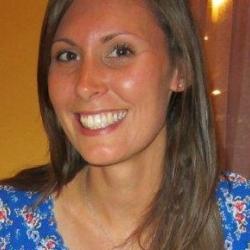Research
Functional studies on a novel gene identified by genome sequencing of patients with uncharacterised inherited bleeding and platelet disorders
The incidence of inherited rare bleeding and platelet disorders (BPD) is estimated to be 200-250 per million individuals. The molecular basis of disease has been delineated in only a small proportion of cases, for example, ~40% of platelet granule defects are understood at the molecular level.
Platelets have three distinct types of granules: alpha, dense, and lysosomal ones. The timely release of their cargo is of critical importance, initially for the formation of the thrombus at sites of vascular damage and at later stages for thrombus resolution and wound healing. Our understanding of the molecular processes underlying the formation of granules and their release upon activation of platelets is incomplete. The identification of genes, which are causal of platelet granule defects, is therefore relevant.
The Ouwehand group has whole genome sequenced (WGS) 1,240 samples from patients with inherited rare bleeding and platelet disorders, of which 18% have documented platelet granule disorders. The gene discovery for rare diseases is complemented by the results of the UK Biobank/INTERVAL genome-wide association study (GWAS) efforts performed by members of the Danesh, Ouwehand and Soranzo groups. The latter study has identified nearly 200 independent genetic associations for the volume, count, crit and distribution-width of platelets, and another 500 associations for the remaining 20 blood cell traits.
Integration of the GWAS and WGS data with information from the Blueprint Blood Cell Epigenome Project and a project, which has generated long-range 3-D interaction maps between promoters and regulatory elements in 15 different blood cell types (collaboration with Fraser lab, Babraham Institute) will lead to the identification of hundreds of novel genes that regulate megakaryopoiesis and the formation and thrombotic function of platelets. I will use this richness of genome and epigenome information and perform co-segregation studies to confirm or refute new putative rare disease genes.
To explore the function of a novel gene and the pathogenicity of variants I will perform functional studies on platelets, primary haematopoietic stem cells (HSC) from probands and gene-edited iPSCs. The aims of identifying the genetic and molecular basis of uncharacterised platelet granule disorders are:
- To improve the diagnosis for this category of patients
- To guide more targeted treatment, and
- To increase our knowledge of the molecular regulation of haemostasis and thrombosis formation.
Publications
Nbeal2 interacts with Dock7, Sec16a, and Vac14. Mayer L, Jasztal M, Pardo M, Aguera de Haro S, Collins J, Bariana TK, Smethurst PA, Grassi L, Petersen R, Nurden P, Favier R, Yu L, Meacham S, Astle WJ, Choudhary J, Yue WW, Ouwehand WH, Guerrero JA. Blood. 2018 Mar 1;131(9):1000-1011.
Prevention and management of venous thromboembolism in pregnancy. Collins J, Bowles L, MacCallum PK. Br J Hosp Med (Lond). 2016 Dec 2;77(12):C194-C200.
Inherited bone marrow failure syndromes. Collins J, Dokal I. Hematology. 2015 Aug;20(7):433-4.
Safety, tolerability, and outcomes of regular automated red cell exchange transfusion in the management of sickle cell disease. Tsitsikas DA, Sirigireddy B, Nzouakou R, Calvey A, Quinn J, Collins J, Orebayo F, Lewis N, Todd S, Amos RJ. J Clin Apher. 2016 Dec;31(6):545-550.
-
Collins J, Tummala H, Collopy L, Vulliamy T & Dokal I. (2016). In Vitro Analysis of the Effects of TA65 and Danazol on the Proliferation and Telomerase Activity of T lymphocytes from Patients with Bone Marrow Failure Syndromes. The Lancet. 387 Special Issue, 29 (Poster abstract)
-
Collins J, Greinacher A & MacCallum P. (2016). Autoimmune heparin-induced thrombocytopenia: a case report. British Journal of Haematology. 173 (Suppl. 1), 169 (Abstract)

